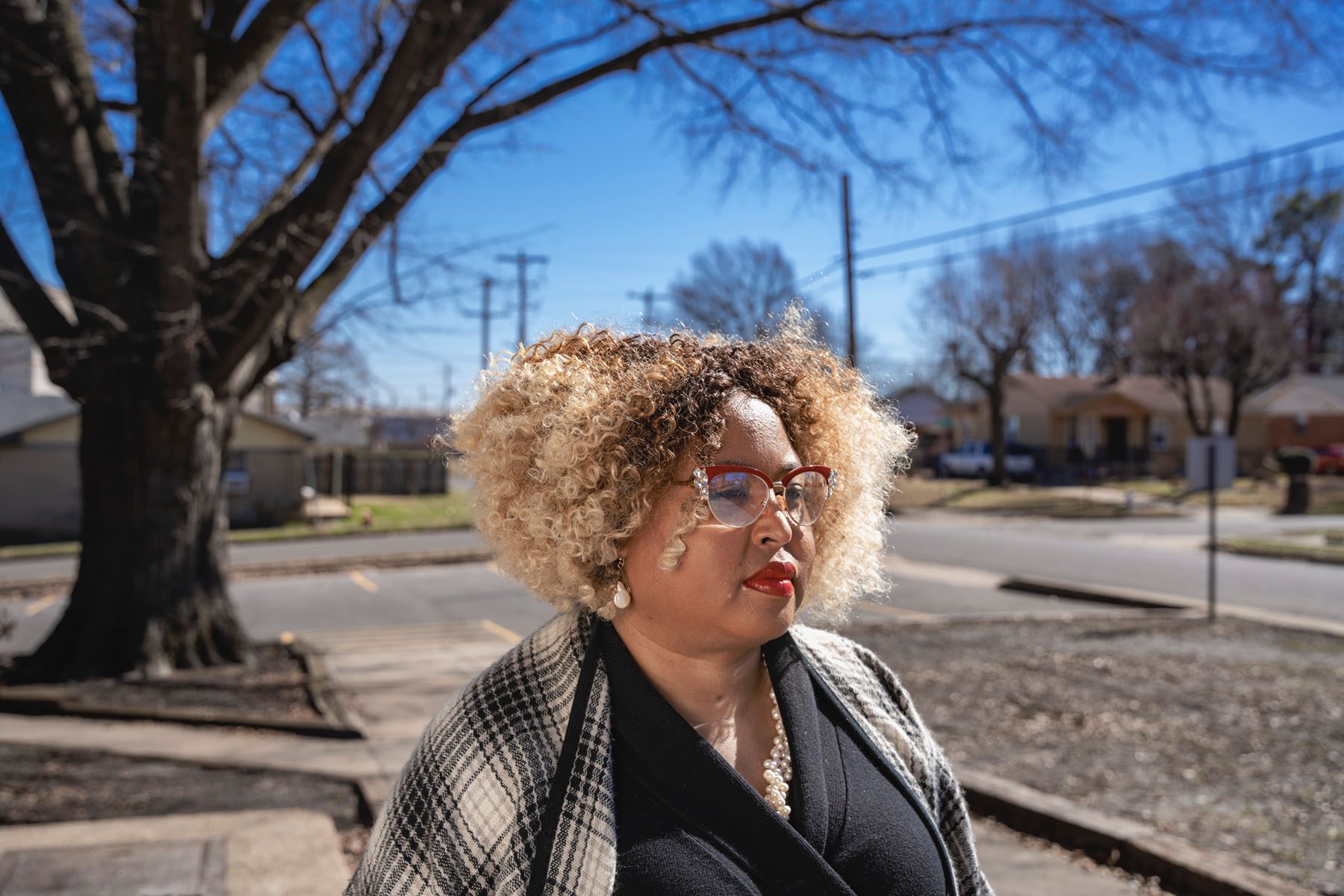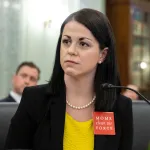We’re answering the “how” and “why” of the intersection of environment and race news. Subscribe to our daily newsletter.
First, the butterflies disappeared. Then, the family dog died; and then the neighbors did, too.
But Marquita Bradshaw’s biggest loss of those adolescent days was probably her great-grandmother. Susie Hall died in 1995 after developing uterine and kidney cancers.
“We lost our matriarch. … She was the kind of person that would cook enough Sunday dinner for the whole church and the neighborhood too,” Bradshaw said.
She attributes her great-grandmother’s death, like many of those in their South Memphis neighborhood, to environmental injustice. Bradshaw grew up within walking distance of the Defense Distribution Depot Memphis Tennessee, an Army surplus site that was active between 1942 and 1989. At the site, the Department of Defense dumped hazardous waste, including German mustard gas bombs, blistering chemical agents and medical waste.
The Environmental Protection Agency deemed the depot a Superfund site in 1992, placing it on their National Priorities List, a designation recognizing it as a known site of contamination where the EPA will take corrective action. The agency’s profile of the site acknowledges that chemicals including arsenic, lead, chromium and nickel have contaminated groundwater there. Of 19 active Superfund sites in the state listed on the EPA’s website, over a third are in Shelby County, which encompasses Memphis.
-
More like this
- Mothers of the movement: Black environmental justice activists reflect on the women who have paved the way
- NAACP climate director explains why now is the time to fight environmental racism
- She grew up under water boil advisories in Jackson. Now she’s bringing environmental justice to the EPA.
Arsenic is associated with increased risk of skin and bladder cancers, and has also been linked to cancers of the lung, digestive tract, liver, kidney, and lymphatic and hematopoietic systems. Lead is regarded as likely cancer-causing by federal and international agencies. It targets the nervous system, resulting in decreased learning, memory and attention, and weakness in fingers, wrists, or ankles. It can also cause anemia, kidney damage, increased blood pressure, miscarriage and damage to the reproductive system. Long-term chromium exposure can cause effects such as damage to the liver, kidney, circulatory and nerve tissues, and skin irritation. Exposure to nickel compounds can increase the risk of nasal and lung cancers.
“It depended on which way the wind blew what happened to communities. I could go down the street and tell you the women and the men that have died of cancer,” Bradshaw said.
In 1995, the same year that Hall died, Bradshaw’s mother, Doris Bradshaw, organized the Defense Depot Memphis Tennessee Concerned Citizens’ Committee in an elementary school cafeteria. The grassroots group held protests, spoke out at community meetings, called on local elected officials and government agencies to help, and in 2000 got an independent groundwater study done by Howard University.
It confirmed their suspicions. The study zeroed in on areas where residents were most concerned and tested for specific tracers that signified the presence of contaminants such as chlorinated organic compounds, rather than generic tests for pesticides and metals. The researchers found high concentrations of organic compounds and heavy metals, including lead, arsenic, cadmium and chromium.
Chromium levels were more than triple the EPA standard limits.
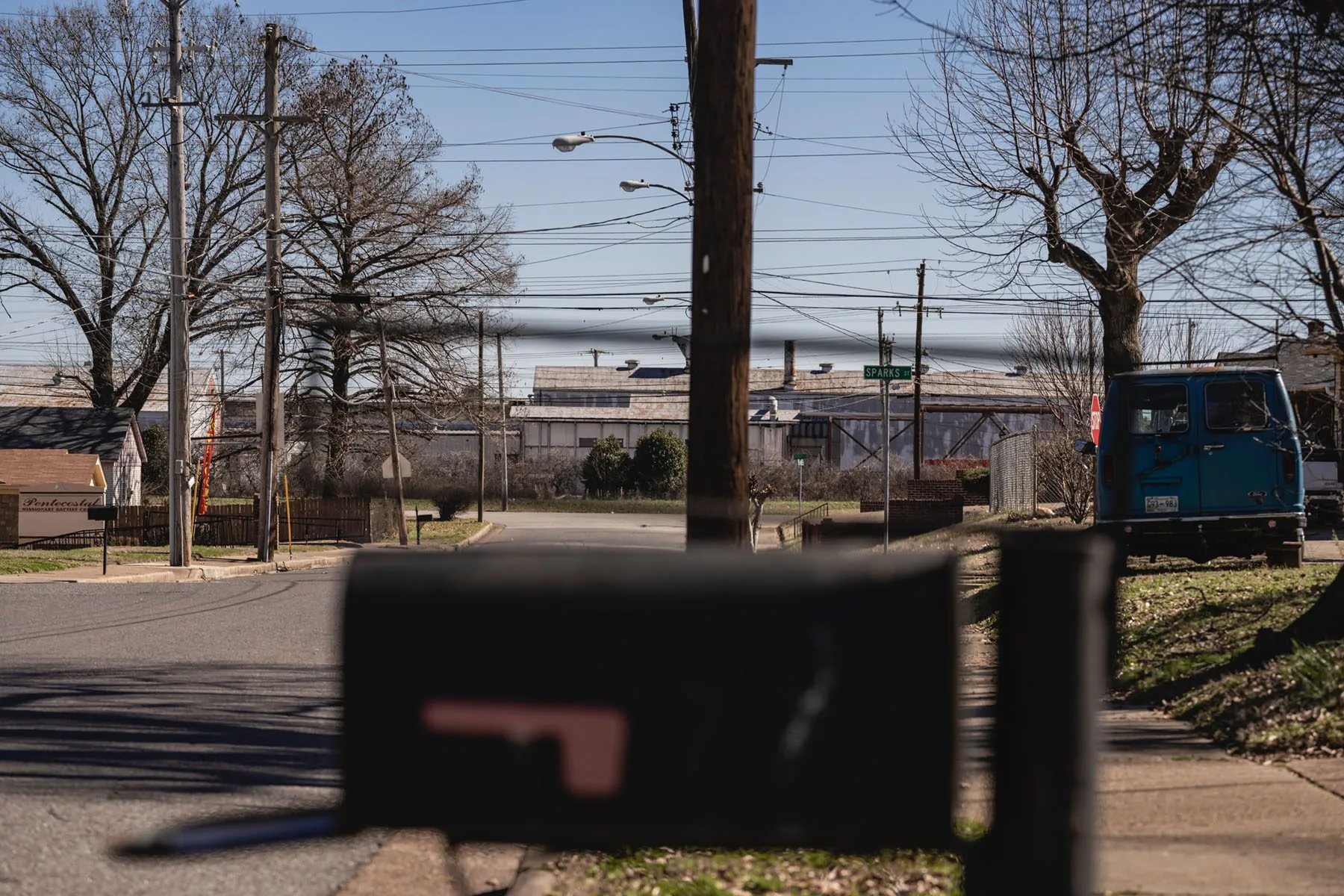
The committee went head-to-head with government agencies that dismissed their claims. The Agency for Toxic Substances and Disease Registry prepared reports that implied there was no cause for alarm, though environmental activists nationwide questioned the legitimacy of its methods. Critics said the reports’ results were watered down, spanning broad census tracts that included areas less likely to be affected by pollution and only covering a limited time period.
The Defense Depot in South Memphis is just one of a laundry list of sites spewing toxic waste into communities in the majority Black city of Memphis. There’s the North Hollywood Dump and the old Firestone plant in North Memphis. There’s the Valero Oil Refinery and Sanitation Services facility actively releasing toxic chemicals in South Memphis, where hundreds of truckloads of coal ash are driven through the streets daily. Bradshaw said a newspaper page would not be enough to list all the environmental issues plaguing Memphis.
All over the city, the remnants of industrialization plague Black communities. And all over the city, residents of those communities, led by women and mothers, have stood up for decades to fight back against multinational corporations.
Today, Memphis is at the crux of the environmental justice movement, exacerbated by factors like climate change and the COVID-19 pandemic. After a series of victories, activists say the tide may finally be turning.
When Bradshaw was a young mother in the late 1990s, she noticed kids in her neighborhood developing uterine, testicular and prostate cancers. She said public health officials told her the children, as well as women developing uterine cancer, had too many sexual partners.
“They called our whole neighborhood whores, basically,” she said.
After that, she joined the fight. She’s traveled internationally, connecting with the global environmental justice movement. And in the 2020 U.S. Senate race, she made history as the first Black woman to win a major political party nomination in any statewide race in Tennessee. She led a campaign based on “leadership for healthy and safe communities.”
Situations like the Bradshaws’ in South Memphis are not unique. Across the country, communities of color bear the burden of environmental racism. And Black women, especially mothers, have faced that burden head on.
“When you look at the environmental justice struggle as a whole, it’s usually the mothers who care for the children that see the impact,” Bradshaw said. “The environmental justice movement is a movement of mothers, first.”
Catherine Coleman Flowers, founder of the Center for Rural Enterprise and Environmental Justice, attributed women’s roles as nurturers as a factor shaping their activism and concerns for the future of the planet for generations to come.
Bradshaw cites a mother of the national movement, Hazel Johnson. Johnson was recognized as the mother of the environmental justice movement after she called attention to the toxic doughnut of landfills, sewage treatment centers, plants and pollutants enveloping her Chicago neighborhood. She founded People for Community Recovery after her husband died of cancer and she was left to raise seven children. Johnson’s work led to President Bill Clinton signing Executive Order 12898, which directed federal agencies to create strategies to address environmental injustices, explicitly mentioning race. However, critics say the order has not produced concrete change.
Johnson’s daughter Cheryl Johnson now carries on her legacy and has taken over People for Community Recovery since her mother’s passing.
Like Cheryl Johnson, Bradshaw carries on her mother’s work, absorbing her mother’s organization into her own, Sowing Justice. Doris Bradshaw, hospitalized with kidney disease that her daughter said is environmentally-induced, hopes to retire soon. But she still advises her daughter and keeps a finger on the pulse of the environmental justice movement.
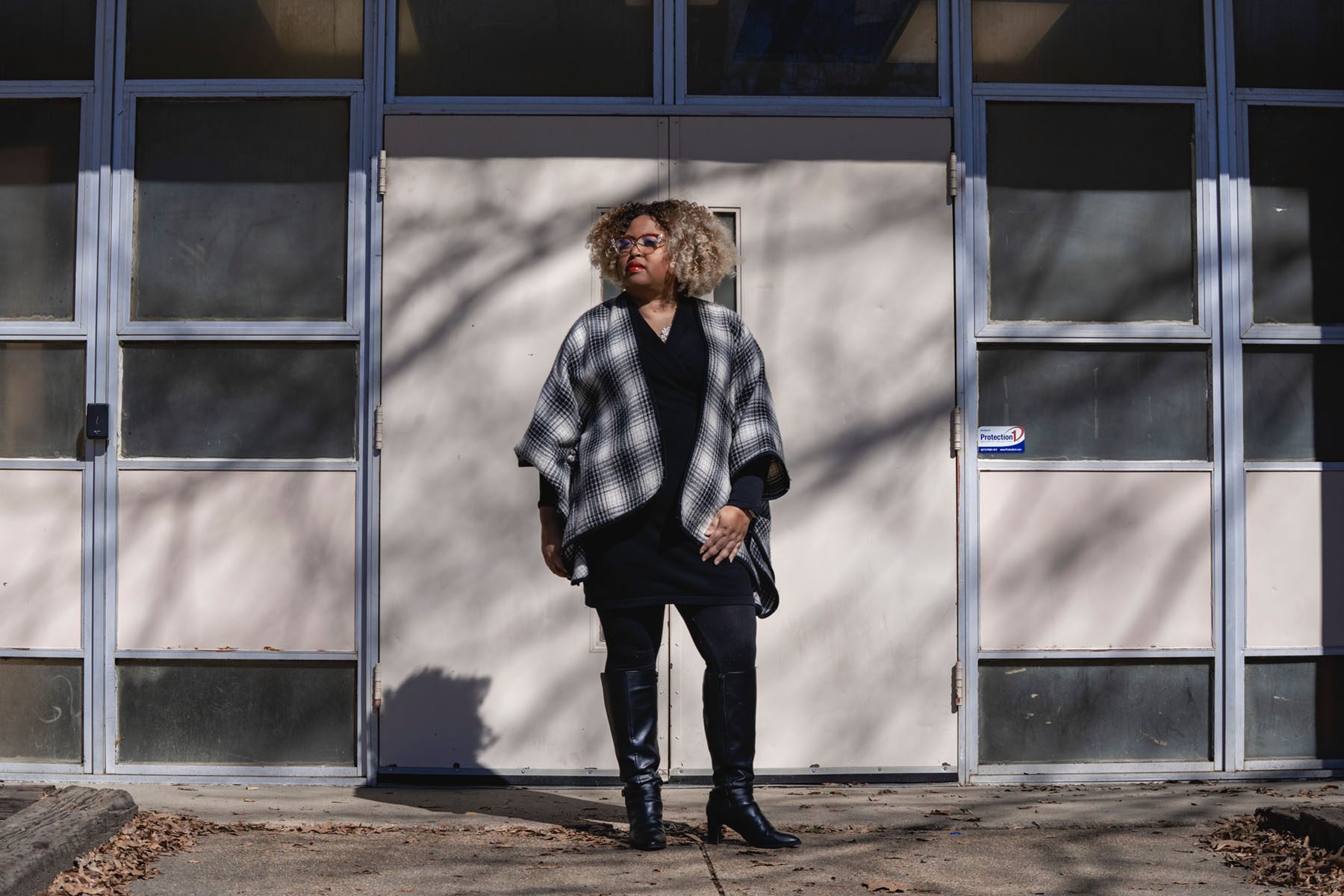

The depot’s approximately 642-acre property still sits in South Memphis. The residents proposed a plan to the city council and county commission in 1997 to turn it into a renewable energy site. Instead, the city formed the Depot Redevelopment Corporation to acquire and plan the reuse of the facilities. They sold depot buildings to private investors and used the money from the sale to fund the city’s economic development and growth engine, which funds developmental projects around the city and includes its majority-White suburbs. Residents say that money should have been invested directly into the community surrounding the depot.
Environmental justice activists’ lived experience speaks to a factor that they, along with the United States government, already knew: Black people are more likely to live, and die, among contaminants, no matter their education level or income.
Race is the strongest predictor of the location of hazardous waste sites, according to reports by the Government Accountability Office and the United Church of Christ’s Commission for Racial Justice. About 97 percent of the people living in the census tract surrounding the depot are Black, according to U.S. Census data. More than half of them are women.
Memphis’ racial makeup, and subsequently the pollution that plagues it, is largely due to its convenient location on the Mississippi River.
The city is situated on one of four Chickasaw bluffs overlooking the Mississippi River that has proven it advantageous for trade, transportation and military operations. Its Native American occupants, and then its colonizers, all found protection from flooding and convenient trade routes.
During the antebellum period, Memphis became the biggest inland market for enslaved people, heavily producing cash crops like tobacco and cotton. And during the Civil War, the city became a Union stronghold, attracting thousands of formerly enslaved people who sought protection at contraband camps.
In the 20th century, industries flocked to the city. Along with industries came chemicals that went largely unregulated until the Clean Air Act of 1970, their remnants still plaguing the city. Raymond C. Firestone, who operated Firestone Tire and Rubber’s largest facility in North Memphis, said it chose the city because it “offered unsurpassed advantages in river and rail transportation, adequate supplies of workers, suitable climate and an excellent geographical location,” according to the Memphis Public Library.
Given its demographic makeup, it’s only logical that Memphis is on the frontlines of a climate crisis as well, said Amanda Garcia, director of the Southern Environmental Law Center Tennessee. A recent study found that Memphis will be part of an extreme heat belt within the next 30 years. In 2021, a record winter storm knocked out power for at least 132,000 people and threatened the drinking water for 260,000 households.
“I don’t think any of it is independent from environmental injustice,” Garcia said. “I think that the legacy of environmental injustice is one of devaluing Black lives, and the conditions of pollution that our society has allowed to exist in South Memphis and the extra deaths that we have allowed to occur in South Memphis are also what has allowed these fossil fuel plants to operate for so long. Those are exacerbating the climate crisis.”
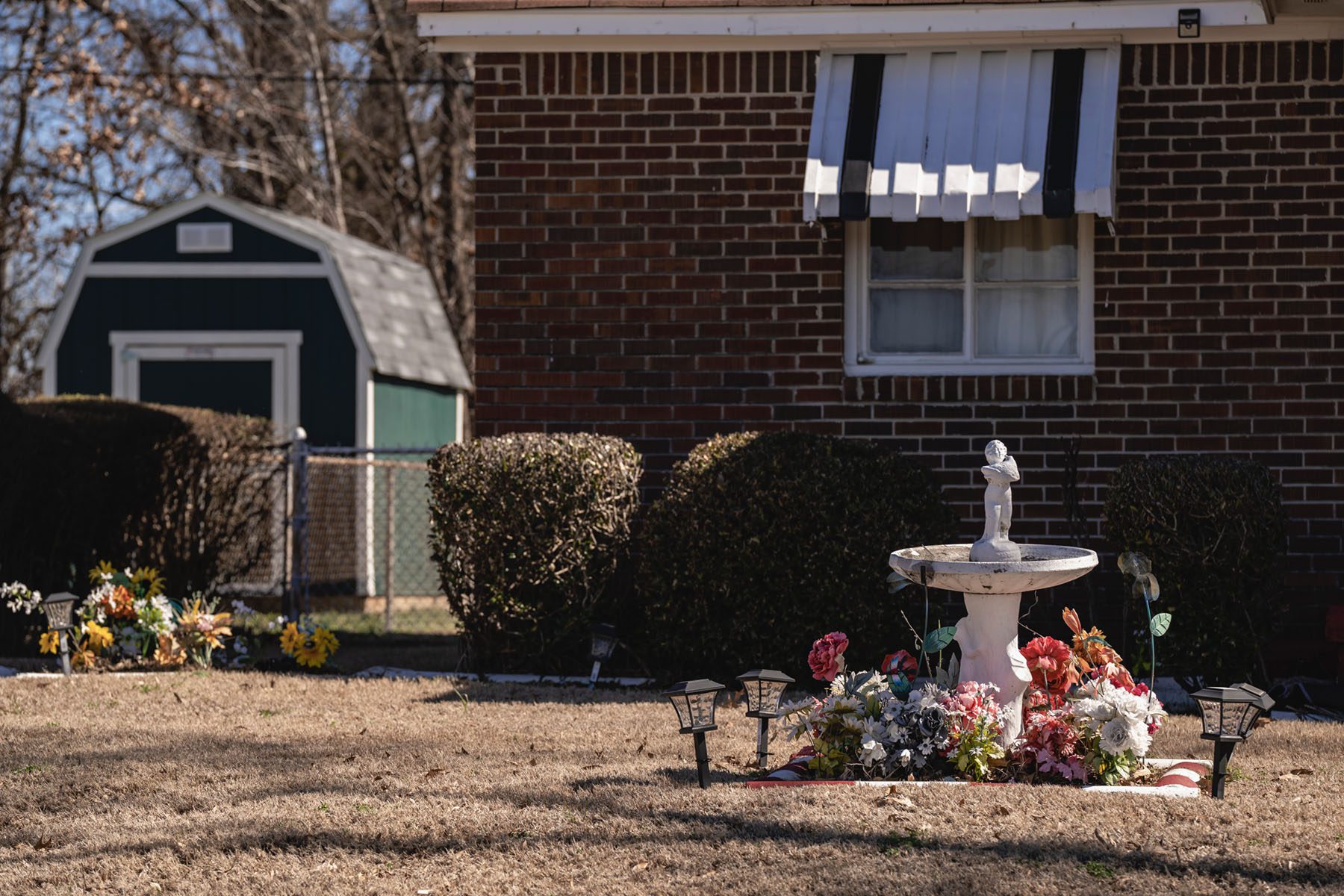
Memphians in the environmental justice movement occupy a space where factors such as race, poverty, gender and power collide, compounding the impacts on the most vulnerable people.
“Those of us who are on the frontlines fighting for this, we’re trying to hold it back from everybody,” Flowers said. “But ultimately, if we don’t win, all of us are going to be impacted, no matter what color you are, no matter how much money you have.”
The intersectionality of the moment has driven what Martin Luther King, Jr. referred to as the fierce urgency of now, according to activist and newly elected state Rep. Justin J. Pearson.
Pearson emerged into the national spotlight against a backdrop of the COVID-19 pandemic, which has killed nearly 4,000 Memphians, and back-to-back moments of highly publicized racial injustices with the police killings of George Floyd and Breonna Taylor.
All of these factors together led Pearson to feel that urgency when he read about a proposed oil pipeline in an article by local publication MLK50. Like Bradshaw, Pearson has lost loved ones to cancer. Both of his grandmothers, he said, had their lives cut short in their 60s. Both lived in neighborhoods in the southwestern area of Memphis.
Pearson’s organizing attracted national attention in 2021 as he led a coalition of organizations and residents to defeat Valero’s proposed Byhalia oil pipeline that would threaten the city’s natural water source and run through predominantly Black neighborhoods.
Groups like Pearson’s — then called Memphis Community Against the Pipeline — Protect Our Aquifer and the Southern Environmental Law Center joined forces. Former Vice President Al Gore and Rev. Dr. William Barber II stood alongside Memphians. Community members petitioned, spoke at public meetings, canvassed door-to-door and filed lawsuits.
Ultimately, the pipeline was canceled.
Pearson attributes the success to people power. He stands on the shoulders of organizers who have led the way like Doris and Marquita Bradshaw, and fights on behalf of people like his grandmothers.
“We have organized, persistent resistance. We have an emphasis on creating a movement that is led by Black folks, that is prioritizing poor folks, that is elevating the issues of our communities that have been marginalized and left out for the first time in quite a long time,” he said. “And we have lawyers, doctors and community leaders who are all on one accord to fight for our lives in a unified fashion.”
After stopping the Byhalia pipeline, one of their latest opponents is the Tennessee Valley Authority (TVA), a federal utility that has leveraged its power as the region’s sole energy provider.
The utility’s coal ash plant, which closed in 2018, ranked among the worst in the nation for contamination of groundwater. Since the plant has shut down, the utility devised another plan: To remove the tons of coal ash, they are driving hundreds of truckloads through South Memphis daily over a period of eight years.
Memphis Light, Gas and Water, the city’s utility, voted against a proposed contract with TVA that activists said would have created a never-ending agreement because it would require 20 years notice for cancelation, while TVA plans to further invest in harmful natural gas plants.
While the local activists can acknowledge the momentum the movement is gaining and that the tide is turning, they agreed that there is still much work to be done.
The Defense Depot is still being monitored by the EPA for groundwater contamination. Though companies have purchased land on the property, there are still regulations on activities such as digging in the soil.
Bradshaw said true justice looks like eliminating that exposure to toxic waste, increasing access to health care facilities that can recognize ailments caused by that exposure, and providing economic reparations for business owners and people who have lived in these communities, so that they can live in safe places where they don’t have to worry about whether the air, water and soil are clean.
Some damage, like the ravaging of a community, cannot be reversed. Some of the chemicals present remain in the body, and could affect generations to come.
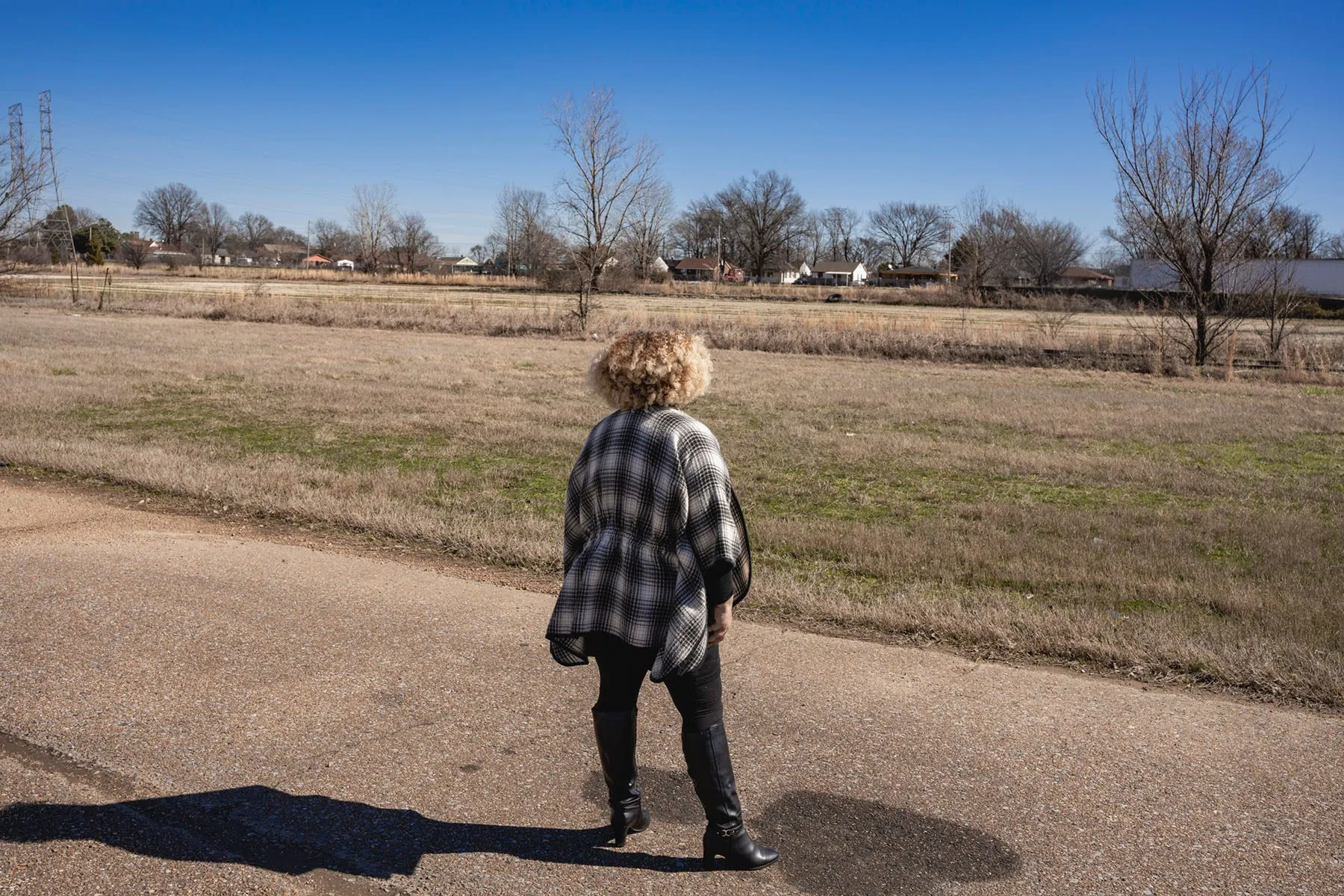
Frank Johnson, a school board member and community organizer who grew up near the depot, rattled off another grim inventory. First, his mother developed brain cancer. Then, it was his older sister. Then, his aunt.
And it wasn’t just cancer. He listed neighbors, family members, students and friends with eczema, asthma, fibroids that grew to the size of a 6-month-old baby, birth defects, abnormal growths and behavioral problems that he’s observed throughout his community in his 45 years. Johnson himself has an enlarged prostate.
“The question started to come up of how was everybody in the same areas experiencing the same thing, but it’s just casually dismissed. What I found out was all of these symptoms were casual symptoms of lead exposure, arsenic, mustard gas and all of these things that they had in these areas,” Johnson said.
He recently got the soil tested on his family’s property in South Memphis. The test showed arsenic, mercury, lead and other toxins were present.
“It’s going to take a whole hell of a lot. Because we’re talking about generations that have just been destroyed,” Johnson said. “I’m not satisfied with just getting an apology. Dealing with this has almost completely destroyed my entire family.”
